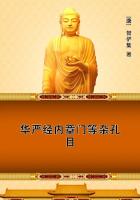Every man of us, at this hour, should have been across, and trimming himself to climb, with bayonet fixed! Browne is ready, expecting our signal-shot to storm in on his side. And our bridge is not built, only the pontoons here. "All things went perverse,"adds Rutowski, for farther comfort: "we [Saxon Home-Army] had with us, except Officers, only Four Pontoniers, or trained Bridge-builders; all the rest are at Warsaw:" sad thought, but too late to think it!
TUESDAY, TILL WEDNESDAY EARLY (12th-13th), Bridge, the Four Pontoniers, with Officers and numb soldiers doing their best, is got built;--Browne waiting for us, on thorns, all day;Prussians extensively beginning to strengthen their posts, about the Lilienstein, about Lichtenhayn, or where risk is; and in fact pouring across to that northern side, quite aware of Rutowski and Browne.
That same night, 12th-13th, while the Bridge was struggling to complete itself,--rain now falling, and tempests broken out,--the Saxon Army, from Pirna down to Hennersdorf, had lifted itself from its Lines, and got under way towards Thurmsdorf, and the crossing-place. Dark night, plunging rain; all the elements in uproar.
The worst roads in Nature; now champed doubly; "such roads as never any Army marched on before." Most of their cannon are left standing; a few they had tried to yoke, broke down, "and choked up the narrow road altogether; so that the cavalry had to dismount, and lead their horses by side-paths,"--figure what side-paths!
Distance to Thurmsdorf, from any point of the Saxon Lines, cannot be above six miles: but it takes them all that night and all next day. Such a march as might fill the heart with pity. Oh, ye Rutowskis, Bruhls, though never so decorated by twelve tailors, what a sight ye are at the head of men! Dark night, wild raging weather, labyrinthic roads worn knee-deep. It is broad daylight, Wednesday, 13th, and only the vanguard is yet got across, trailing a couple of cannons; and splashes about, endeavoring to take rank there, in spite of wet and hunger; rain still pouring, wind very high.
Nothing of Browne comes, this Wednesday; but from the opposite Gross-Sedlitz and Gottleube side, the Prussians are coming.
This morning, at daylight, struck by symptoms, "the Prussians mounted our empty redoubts:" they are now in full chase of us, Ziethen with Hussars as vanguard. A difficult bit of marching, even Ziethen and his light people find it; sprawling forward, at their cheeriest, with daylight to help, and in chase, not chased, through such intricacies of rock and mud. Ziethen's company did not assist the Saxons! They wheel round, show fight, and there is volleying and bickering all day; the Saxon march getting ever more perturbed.
Nearly all the baggage has to be left. Ziethen takes into the woods near Thurmsdorf; giving fire as the poor wet Saxons, now much in a pell-mell condition, pass to their Bridge. [PRUSSIAN ACCOUNT (in <italic> Gesammelte Nachrichten), <end italic> i. 852.]
Heavier Prussians are striding on to rear; these, from some final hill-top, do at last belch out two cannon-shots: figure the confusion at that Bridge, the speed now becoming delirious there!
Towards evening, rain still violent, the Saxons, baggageless, and rushing quite pell-mell the latter part of them, are mostly across, still countable to 14,000 or so;--upon which they cut their Bridge adrift, and let the river take it. At Raden, a few miles lower, the Prussians fished it out; rebuilt it more deliberately,--and we shall find it there anon. This day Friedrich, hearing what is afoot, has returned in person from the Lobositz Country;takes Struppen as his head-quarter, which was lately the Polish Majesty's.
From Browne there has nothing come this Wednesday; but to-morrow morning at seven there comes a Letter from him, written this night at ten; to the effect:--"HEAD-QUARTER, LICHTENHAYN, Wednesday, October 13th, 10 P.M.
"EXCELLENZ,--Have [omitting the I] waited here at Lichtenhayn since Tuesday, expecting your signal-cannon; hearing nothing of it, conclude you have by misfortune not been able to get across;and that the Enterprise is up. My own position being dangerous [Prussians of double my strength intrenched within few miles of me], I turn homewards to-morrow at nine A.M.: ready for whatever occurs TILL then; and sorrowfully say adieu," [PRECIS (ut supra), p. 493; <italic> Helden-Geschichte, <end italic> iii. 940; &c.]
Dreadful weather for Browne in his bivouac, and wearisome waiting, with Prussians and perils accumulating on him! Browne was ill of lungs; coughing much; lodging, in these violent tempests, on the cold ground. A right valiant soldier and man, as does appear;the flower of all the Irish Brownes (though they have quite forgotten him in our time), and of all those Irish Exiles then tragically spending themselves in Austrian quarrels! "You saw the great man," says one who seems to have been present, "how he sacrificed himself to this Enterprise. What Austrian Field-marshal but himself would ever have lowered his loftiness to lead, in person, so insignificant a Detachment, merely for the public good!
I have seen staff-officers, distinguished only by their sasheries and insignia, who would not have stirred to inspect a vedette without 250 men. Our Field-marshal was of another turn.
Sharing with his troops all the hardships, none excepted, of these critical days; and in spite of a violent cough, which often brought the visible blood from his lungs, and had quite worn him down;exposing himself, like the meanest of the Army, to the tempests of rainy weather. Think what a sight it was, going to your very heart, and summoning you to endurance of every hardship,--that evening [not said which], when the Field-marshal, worn out with his fatigues and his disorder, sank out of fainting-fits into a sleep!
The ground was his bed, and the storm of clouds his coverlid.















